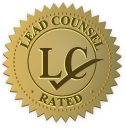National Interest Waiver San Diego Attorneys
If you are seeking an employment-based green card, a second preference EB-2 visa may be the right choice if you have exceptional ability in your field or if you have an advanced degree in your field. You may request a National Interest Waiver (NIW) if you can prove that your work is important and will significantly benefit the United States.
Obtaining a National Interest Waiver allows petitioners to skip the labor certification process and bypass the requirement of having a permanent job offer and employer sponsor in the United States. Instead, those with a National Interest Waiver may file their labor certification through United States Citizenship and Immigration Services (USCIS) and self-petition for the EB-2 visa.
Requirements For National Interest Waivers
In order to receive a National Interest Waiver, you must provide documentation that the United States would benefit from your work as well as that you would otherwise qualify for an EB-2 visa. Specifically, your application needs to prove the following points:
- You must prove that it would be in the interest of the United States to have you permanently live and work in the United States. Your work should benefit the nation to a greater extent than the work of others in your field.
- The area you are working on has “substantial intrinsic merit.” Essentially, the work you are doing must be important, such as curing cancer or other diseases or developing a new technology that will help millions of people live better lives.
- You must prove that the nation would be adversely affected if you were required to go through the Department of Labor’s labor certification process. Your work should be of such significance that it outweighs the possibility that your employment could negatively affect current U.S. workers in some way.
- You must prove that you have an advanced degree or a Bachelor’s degree plus 5 years of experience. Alternatively, you can prove that you possess exceptional ability in your field. You may prove this by providing evidence of three out of seven of the following criteria:
* You have a degree in your field.
* You have ten or more years of experience in your field.
* You have a professional license.
* You command a salary that reflects your exceptional ability.
* You hold memberships in professional associations related to your field.
* You have been recognized by peers or public organizations for your significant contributions.
* You have other comparable evidence that you have an exceptional ability.
National Interest Waivers for Physicians
Trained physicians may apply for a National Interest Waiver when seeking an EB-2 visa. However, doctors must meet the following special requirements:
- They must prove they have the qualifications, degrees, and experience needed to work as a doctor in the United States.
- They must obtain a full-time job practicing in the United States for at least five years.
- They must obtain a primary care position or a specialty position, including work as a family practitioner, a general practitioner, a pediatrician, an internist, an OBGYN, or a psychiatrist.
- They must work in a geographic area that needs doctors, such as a Health Professional Shortage Area (HPSA), Medically Underserved Area (MUA), Physician Scarcity Area (PSA), Mental Health or Professional Area (MHPSA). They may also work for Veterans Affairs.
EB-2 Visa Attorneys Offer National Interest Waiver Assistance
At Feldman Feldman & Associates, PC, we can help you determine if your employment in the United States is in the national interest of the country and if you could apply for an EB-2 NIW successfully. We will guide you through every step of the process, from helping you secure the evidence for your case to drafting the cover letter and application forms themselves. To learn more about our services, and employment-based green cards, or to speak with a San Diego immigration attorney, contact us today. The Employment Based Second Preference Category is for members of the professions who hold advanced degrees and individuals of exceptional ability in the arts, sciences or business. Although this category generally requires an employer and labor certification, the Attorney General may waive this requirement if the work of the alien is in the “national interest.”
This immigrant visa category is for “members of the professions holding advanced degrees,” and “aliens of exceptional ability.”
USCIS defines an advanced degree as a professional or academic degree, given by a U.S. institution, beyond that of a baccalaureate. A foreign degree from an overseas institution may also be acceptable if the USCIS determines it to be equivalent to a U.S. degree.
After the baccalaureate degree five years of employment experience, involving incremental responsibility in the profession, may be used in place of the advanced degree to qualify for the second preference category. This is provided the position requires the advanced degree.
Aliens of Exceptional Ability in the Sciences, Arts, or Business Employer and Labor Certification Required
USCIS has specified “exceptional ability” in the sciences, arts, or business as “a degree of expertise significantly above that ordinarily encountered.” To prove such exceptional ability, the USCIS regulations propose submitting at least three of these kinds of documentation :
- A license to practice the profession or certification for a particular profession or occupation;
- Evidence in the form of letter(s) from current or former employer(s) showing that the alien has at least ten years of full-time experience in the occupation for which s/he is being sought;
- An official academic record showing that the alien has a degree, diploma, certificate, or similar award from a college, university, school, or other institution of learning, relating to the area of exceptional ability;
- Evidence that the alien has commanded a salary, or other remuneration for services, which demonstrates exceptional ability;
- Evidence of recognition for achievements and significant contributions to the industry or field by peers, governmental entities, or professional or business organization;
- Evidence of membership in professional associations. Here, the applicant must have a job offer in the profession for which s/he is academically prepared.
The national interest waiver (NIW) involves a standard higher than that required to establish a prospective national benefit. Since there are no criteria specifically outlined in the law as to what constitutes national interest waiver, seven factors have been suggested.
To qualify for a national interest waiver the individual’’s work must benefit the U.S. in the national interest. Since the term national interest has not been defined in the statute, certain factors are taken into account in determining national interest. These factors include improvement of: the U.S. economy; wages and working conditions for U.S. workers; education, health care, the environment and housing. An interested government agency request is an added factor which is given considerable weight by the USCIS.
Please note that approvals in this category have become more difficult to obtain since August of 1998, due to a case known as the “New York State Department of Transportation” (NYSDOT) case. USCIS is scrutinizing these petitions more carefully and, in many instances, is applying a higher standard similar to the “extraordinary ability” standard. We have filed applications in this category on a regular basis and we have been extremely successful in this category even subsequent to the NYSDOT case.
NIW Processing Guidelines by the Texas Service Center (similar to that used by all service centers)
In an advisory opinion dated May 22, 1998, the Texas Service Center (TSC) in following the example of the California Service Center, issued the certain guidelines and suggestions regarding the filing of I-140 National Interest Waiver (NIW) petitions at the Texas Service Center, explaining that the intent of the guidelines is to reduce the time and effort required on both the part of the attorneys/petitioners and the Service in the filing and adjudication of these complex petitions.
TSC’s guidelines can be summarized as follows:
a) NIW applicants must prove prospective national benefit required of all aliens seeking qualification as exceptional. The prospective national benefit applies only to aliens who will substantially benefit prospectively the national economy, cultural or educational interests or welfare of the United States.
Prospective national benefit is required for all EB1 and NIW applications so TSC’s guidelines appear to require it only for specific cases is actually beneficial and provides a more expansive interpretation for NIW applicants.
b) NIW cases require that the emphasis rest with the overall value and potential of the beneficiary’s individual contribution to the U.S. — not the fact that the applicant is working in a field of high national interest. The alien may qualify by being found to be a key or critical member of a team if it can be shown that the team function would be severely adversely affected without this member. Merely working in an area of national interest does not necessitate a finding of national interest qualification.
c) NIW Petition require testimonial letters from substantial, recognized national or international organizations/institutes/government agencies with the expertise to definitely say that the work or contribution of the individual truly is in the national interest. The authors of these third-party testimonial letters should clearly state in what context they are familiar with the work of the NIW applicant.
d) Placing the testimonial evidence with the attorney/petitioner summary letters at the front directly below the Form I-140 will eliminate wasting the examiner’s time spent reviewing background materials like academics articles, field surveys, general reports, etc., which often add minimal weight to the specific achievements or individual NIW claim.
e) NIW Petitions from graduate students who have not had enough time or experience as a researcher or engineer in order to qualify for the NIW category and have done little, outside the work required to complete their degree is often a waste of time and money. Often the claim is made that their area of research is so potentially cutting edge or so significant that it must be in the national interest. TSC explains that in accordance with established criteria, it should be very difficult for such a student or newly graduated student to qualify for NIW.
f) TSC officers look for realistic evidence of substantial prospective benefit to a national interest item or agenda which specifically sets the NIW applicant apart from others in the field.
Examples of some of the more common factors that tip the scales favorably:
– A sustained record of high achievement — especially of a national interest caliber.
– Support or testimonial letters from substantial recognized government agencies, cultural institutions; national/international organizations with expertise in the field in question, which specifically mention the alien and explain why his/her work is in the national interest.
– Such letters submitted by renowned professors or corporate executives should be accompanied by the resume of the writer.
– Articles in major publications about the alien which denote critical acclaim or substantiate the high repute of the individual.
– Critically acclaimed published books or articles where the alien is the primary or first author.
– Secured patent(s) with evidence that the patented product, process or innovation is actually being sold, used or applied in the field.
– Evidence that the alien is the head or critical member of a team working on a project of genuine national interest.
– Evidence that the alien’s individual project is funded by a grant from a governmental agency or major scientific organization where the alien is listed in funding documents as the principal investigator. However, if evidence of this nature is submitted, it should be accompanied by a letter from the funding agency or organization clearly explaining how the project is in the national interest.







